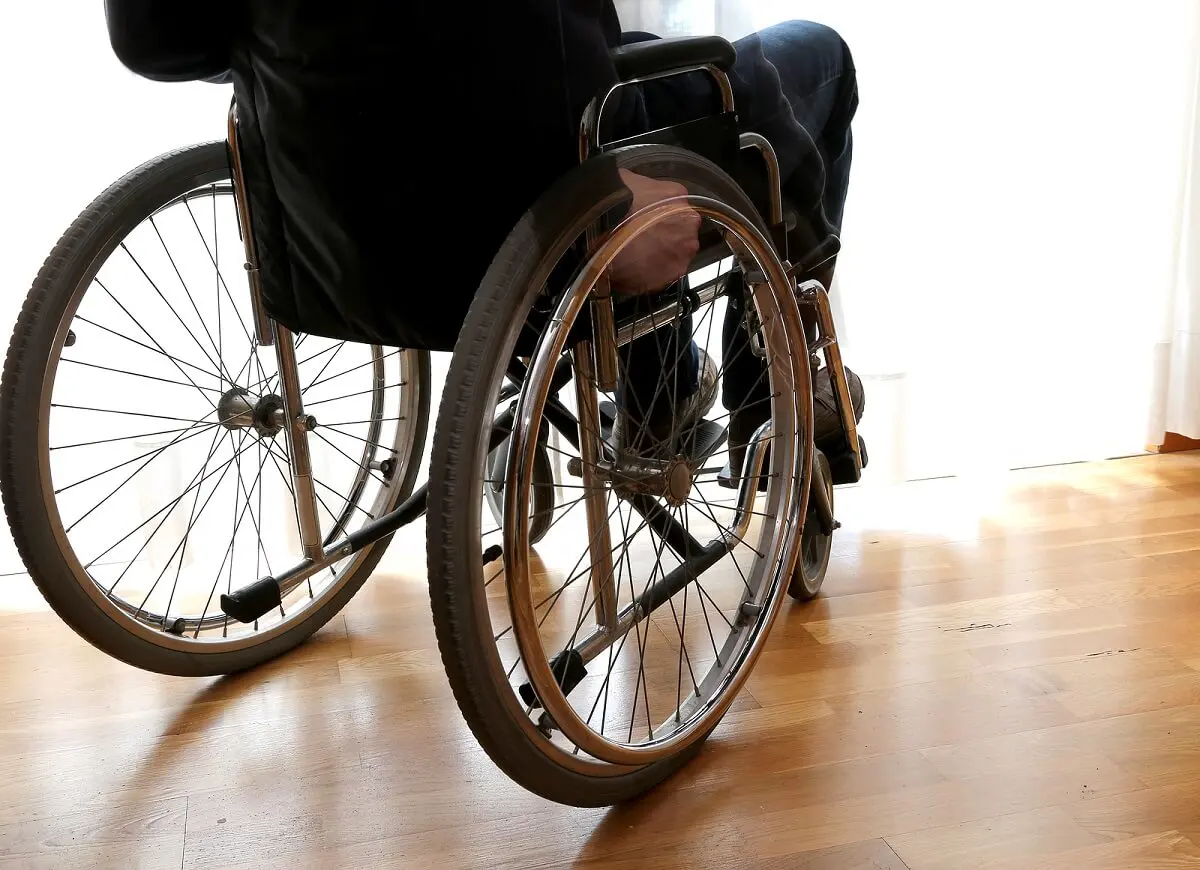Cannabis Use for MS Symptoms: What Are Its Effects?

Many patients around the world have reported that cannabis use helps them control the symptoms of multiple sclerosis (MS). The evidence is somewhat ambiguous. There’s no definitive conclusion at the moment, but all indications are that the path is hopeful.
Recall that multiple sclerosis is a severe and incurable degenerative disease. It leads to hyperactivity in the immune system that causes serious damage to neurons.
In recent years, the use of medical cannabis has increased for a number of conditions, including multiple sclerosis. Everything indicates that this substance is capable of reducing muscular and neuropathic problems, and even improving the quality of sleep. However, the evidence isn’t yet conclusive.
Cannabis use and MS
MS is an autoimmune disease that can damage the brain, spinal cord, and optic nerves. It causes a variety of symptoms and these vary from person to person. However, it’s common to have some very unpleasant manifestations, such as muscle pain, spasms and numbness.
For some time now, the use of cannabis has been implemented to control MS symptoms. Specifically, a derivative of this plant known as cannabidiol or CBD is indicated. This doesn’t contain tetrahydrocannabinol (TCH), so it doesn’t alter consciousness.
There are 3 types of cannabidiol on the market:
- CBD isolate: This is pure cannabidiol and doesn’t contain any other substance present in Cannabis spp.
- Broad-spectrum CBD: This doesn’t contain THC, but does contain other compounds from Cannabis spp.
- Full-spectrum CBD: Contains minimal amounts of THC. All indications are that it’s the most effective type for MS symptoms.
Benefits of cannabis use for MS symptoms
Although more research is needed on the use of cannabis for MS symptoms, institutions such as the National Multiple Sclerosis Society of the United States support its use. Likewise, a 2018 study found that most patients tolerate the substance well.
They also showed that adverse effects were rare, though cautioning that, in specific cases, these could be of consideration.

Contributes to the recovery of muscle control
Research from 2014 concluded that cannabis use reduces problems with stiffness and muscle spasms in MS patients. They found that oral cannabis extract (OCE) has this positive effect, while other formats don’t.
Meanwhile, a review compiling 11 investigations on cannabis use gave different results. Five of these studies indicated that there was insufficient evidence on the benefits of the substance.
Can relieve pain
The available data indicate that the use of cannabis is an effective measure to reduce pain. This effect has been proven in both patients who smoked the substance, as well as those who ingested it orally. A 2018 research review has corroborated this.
Anti-inflammatory
Several pieces of research on animals have been conducted on the effects of cannabis. This has established that the use of the substance reduces inflammation levels and its consequences. However, human studies are required to corroborate these findings.
Helps reduce bladder problems
Many people with multiple sclerosis have problems with bladder dysfunction. According to research conducted in 2014, cannabis use helps to reduce and manage the symptoms caused by this difficulty.
Other benefits
Several reports indicate that cannabis use is also helpful in reducing other symptoms common in multiple sclerosis, such as fatigue and itching. It appears that patients who use this substance also have fewer depressive signs and sleep better.
Possible risks and contraindications
One of the risks of using cannabis to treat MS symptoms is that it may not produce any effect. Likewise, we know that this substance doesn’t help to control one of the most frequent manifestations of this disease, which are tremors.
Apparently, most people don’t suffer side effects from the use of this substance, but in some of them the following side effects could occur:
- Elevated heart rate
- Nausea and vomiting
- Mental confusion
- Dry mouth and eyes
- Increased appetite
- Drowsiness
- Dizziness
- Fatigue
Pregnant or breastfeeding women in a state of pregnancy shouldn’t resort to cannabis use. Neither should people with heart conditions, Parkinson’s disease or those who have suffered from psychosis or who have ingested certain medications, such as clobazam or valproic acid.

You might also be interested in: 10 Types of Hallucinations: Characteristics and Possible Causes
Final uses and recommendations
Cannabis comes in different formats and its medicinal derivatives have different compositions. Ideally, a doctor should be the one to advise which product to use for each person. If not, it could be inefficient or even be a risk.
It’s recommended that the preparation doesn’t contain more than 0.3% TCH and that it complies with ISO 17025. Cannabis that comes from a recognized laboratory is also more reliable.
The use of cannabis for MS is usually recommended in the form of oils or creams. Oils are incorporated into food or applied directly to the tongue. There are also capsules or nasal sprays, but there isn’t much evidence regarding their efficacy.
All cited sources were thoroughly reviewed by our team to ensure their quality, reliability, currency, and validity. The bibliography of this article was considered reliable and of academic or scientific accuracy.
- Marijuana FAQs. (s. f.). National Multiple Sclerosis Society. https://www.nationalmssociety.org/Treating-MS/Complementary-Alternative-Medicines/Marijuana/Marijuana-FAQs.
- Rice J, Cameron M. Cannabinoids for Treatment of MS Symptoms: State of the Evidence. Curr Neurol Neurosci Rep. 2018 Jun 19;18(8):50. doi: 10.1007/s11910-018-0859-x. PMID: 29923025.
- Koppel, B. S., Brust, J. C., Fife, T., Bronstein, J., Youssof, S., Gronseth, G., & Gloss, D. (2014). Systematic review: efficacy and safety of medical marijuana in selected neurologic disorders: report of the Guideline Development Subcommittee of the American Academy of Neurology. Neurology, 82(17), 1556–1563. https://doi.org/10.1212/WNL.0000000000000363.
- Nielsen S, Germanos R, Weier M, Pollard J, Degenhardt L, Hall W, Buckley N, Farrell M. The Use of Cannabis and Cannabinoids in Treating Symptoms of Multiple Sclerosis: a Systematic Review of Reviews. Curr Neurol Neurosci Rep. 2018 Feb 13;18(2):8. doi: 10.1007/s11910-018-0814-x. PMID: 29442178.
- Vučković, S. (2018). Cannabinoids and Pain: New Insights From Old Molecules. Frontiers. https://www.frontiersin.org/articles/10.3389/fphar.2018.01259/full.
- Koppel, B. S., Brust, J. C., Fife, T., Bronstein, J., Youssof, S., Gronseth, G., & Gloss, D. (2014). Systematic review: efficacy and safety of medical marijuana in selected neurologic disorders: report of the Guideline Development Subcommittee of the American Academy of Neurology. Neurology, 82(17), 1556–1563. https://doi.org/10.1212/WNL.0000000000000363.
- Hernández Mendoza, L. M. (2019). Cannabinoides y esclerosis múltiple.
This text is provided for informational purposes only and does not replace consultation with a professional. If in doubt, consult your specialist.








